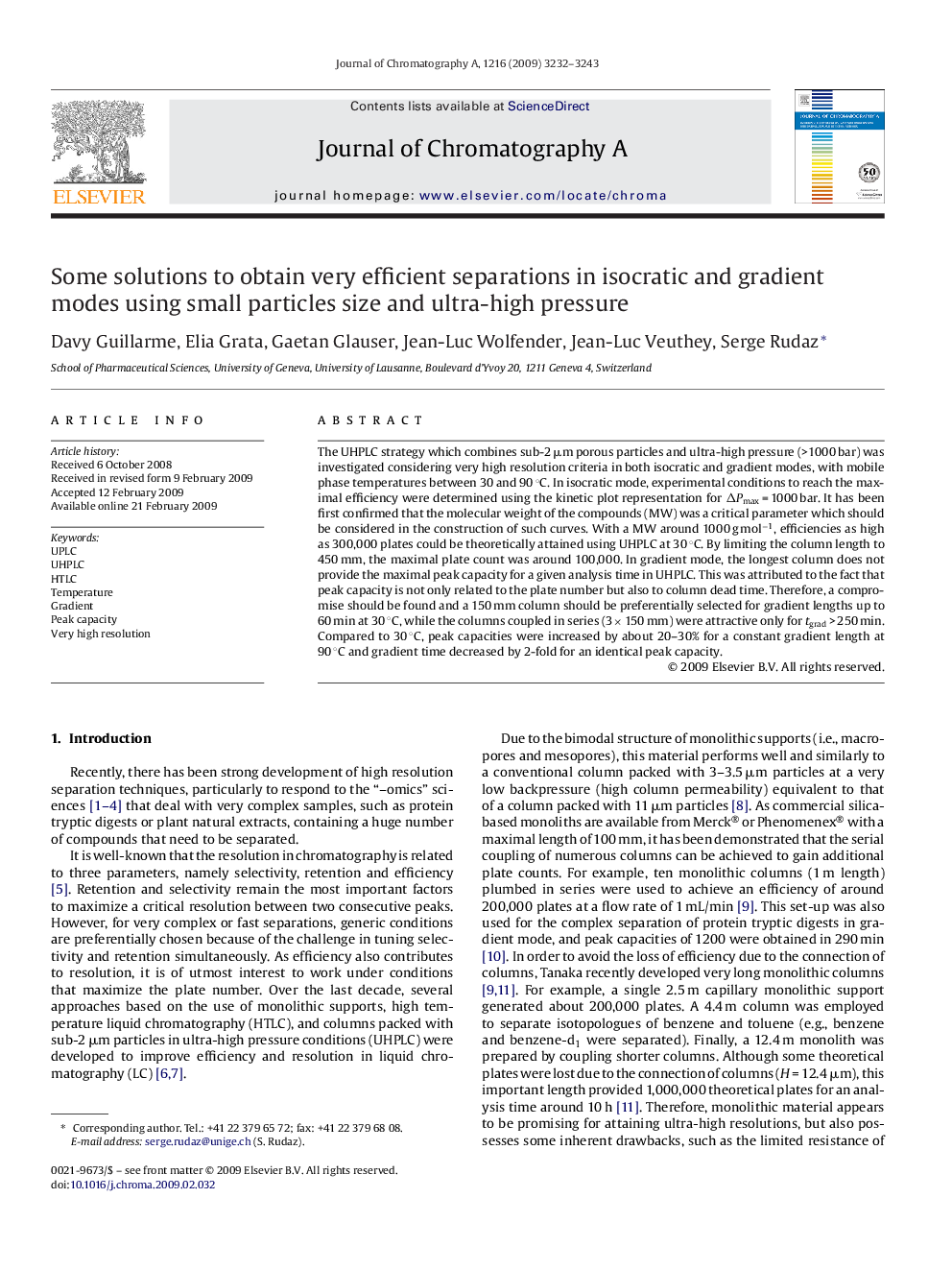| کد مقاله | کد نشریه | سال انتشار | مقاله انگلیسی | نسخه تمام متن |
|---|---|---|---|---|
| 1204478 | 965155 | 2009 | 12 صفحه PDF | دانلود رایگان |

The UHPLC strategy which combines sub-2 μm porous particles and ultra-high pressure (>1000 bar) was investigated considering very high resolution criteria in both isocratic and gradient modes, with mobile phase temperatures between 30 and 90 °C. In isocratic mode, experimental conditions to reach the maximal efficiency were determined using the kinetic plot representation for ΔPmax = 1000 bar. It has been first confirmed that the molecular weight of the compounds (MW) was a critical parameter which should be considered in the construction of such curves. With a MW around 1000 g mol−1, efficiencies as high as 300,000 plates could be theoretically attained using UHPLC at 30 °C. By limiting the column length to 450 mm, the maximal plate count was around 100,000. In gradient mode, the longest column does not provide the maximal peak capacity for a given analysis time in UHPLC. This was attributed to the fact that peak capacity is not only related to the plate number but also to column dead time. Therefore, a compromise should be found and a 150 mm column should be preferentially selected for gradient lengths up to 60 min at 30 °C, while the columns coupled in series (3× 150 mm) were attractive only for tgrad > 250 min. Compared to 30 °C, peak capacities were increased by about 20–30% for a constant gradient length at 90 °C and gradient time decreased by 2-fold for an identical peak capacity.
Journal: Journal of Chromatography A - Volume 1216, Issue 15, 10 April 2009, Pages 3232–3243